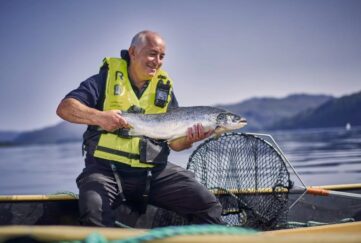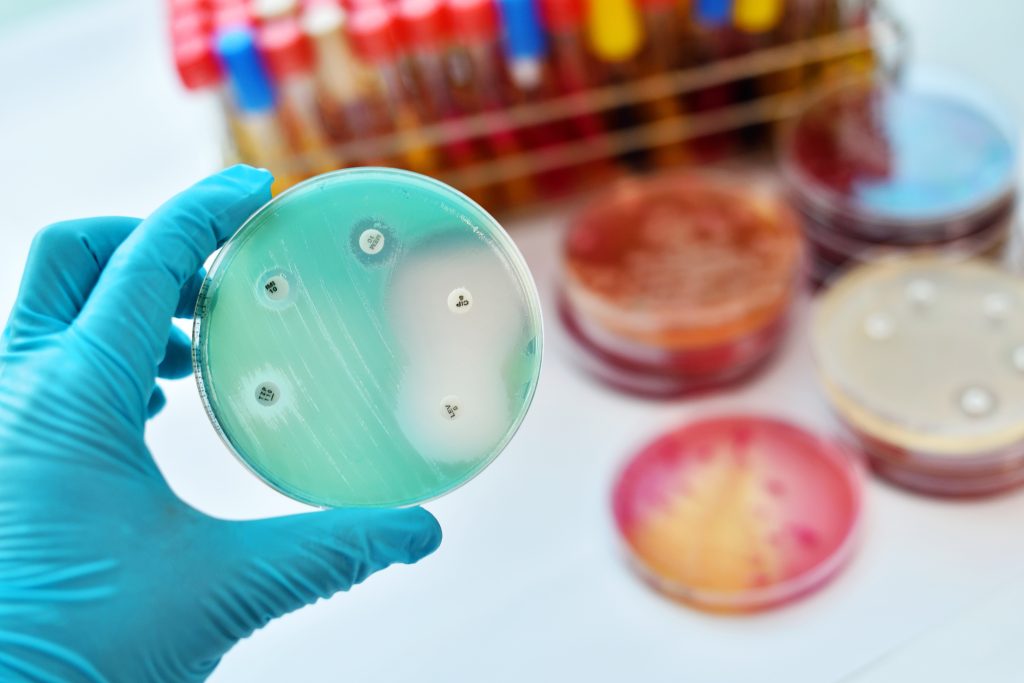Scottish salmon industry records big fall in antibiotics use

Scotland’s salmon farming companies have dramatically reduced antibiotic medicine use by more than half in the space of a year, UK Government figures show.
The new Veterinary Medicines Directorate’s Veterinary Antimicrobial Resistance and Sales Surveillance (VARSS) report shows that 2022 usage of antibiotics in salmon was 18.6 mg/kg, down 24.5 mg/kg since 2021. The amount of antibiotics used last year for farmed salmon was only slightly more (by just under 3%) than when this information was first recorded in 2017.
The level for pig farming was 71.8 mg/kg (down 15.5mg/kg on 2021) and 35.4 mg/kg in turkeys (down 7.2mg/kg), while the sheep and cattle sectors do not publish full data.
Farmed trout, however, recorded a big increase of 35.2mg/kg, to 44.1mg/kg.
In 2022 the total quantity of antibiotic active ingredient sold in the UK for livestock was 193 tonnes, the lowest sales to date and 57% less than when this figure was first compiled in 2014.
The VARSS report also records the use of Highest Priority Important Antibiotics (HP-CIAs), the antimicrobials seen as most important for human medicine and for which antimicrobial resistance would present the greatest threat.
HP-CIAs represented less than 0.5% of sales for animal food production, and overall sales of antibiotics in this category are down 59% compared with 2014. All categories of production, including trout, saw significant falls in HP-CIA use in 2022 compared with the previous year.
Tests on pigs and poultry indicated that bacterial sensitivity to antibiotics (that is, reduced antimicrobial resistance) continues to fall.
Covid led to uptick in antibiotic use
Last year, fewer than one in 10 seawater farms used antibiotics – meaning the overwhelming majority of salmon farms did not treat with antibiotics at all. The small number of farms that did so used less than half the amount of the previous year, indicating that the environmental challenges which could be managed through antibiotics had dissipated in 2022.
Industry body Salmon Scotland said the higher level of antibiotic use in 2021 was partly due to the need to keep larger fish in the sea for longer, in the wake of the Covid pandemic.
Salmon Scotland added: “Medicines are only used when qualified vets deem it necessary to treat specific bacterial infections and when there is clear evidence that treatment will improve the health of fish, with any antibiotics only used under licence by the Scottish environmental regulator, SEPA.
“The salmon sector does not use any antibiotics that have been identified as high priority for human health and there is no trace of antibiotics making its way into the food chain, meaning consumers can always eat fresh Scottish salmon with confidence.”
Dr Iain Berrill, Head of Technical at trade body Salmon Scotland, said: “Like any medicine, antibiotics are used responsibly, sparingly and only when required in the health and welfare interests of our fish, and only under prescription from licensed veterinarians.
“The requirement to protect our fish from environmental challenges meant a significantly lower level of antibiotics were used in the past 12 months on a very small number of farms.
“As part of our commitment to transparency, we aim to reduce use as low as possible to give consumers full confidence when they enjoy one of the most nutritious and tasty foods we produce in Scotland.”

Antimicrobial resistance is a health concern worldwide

